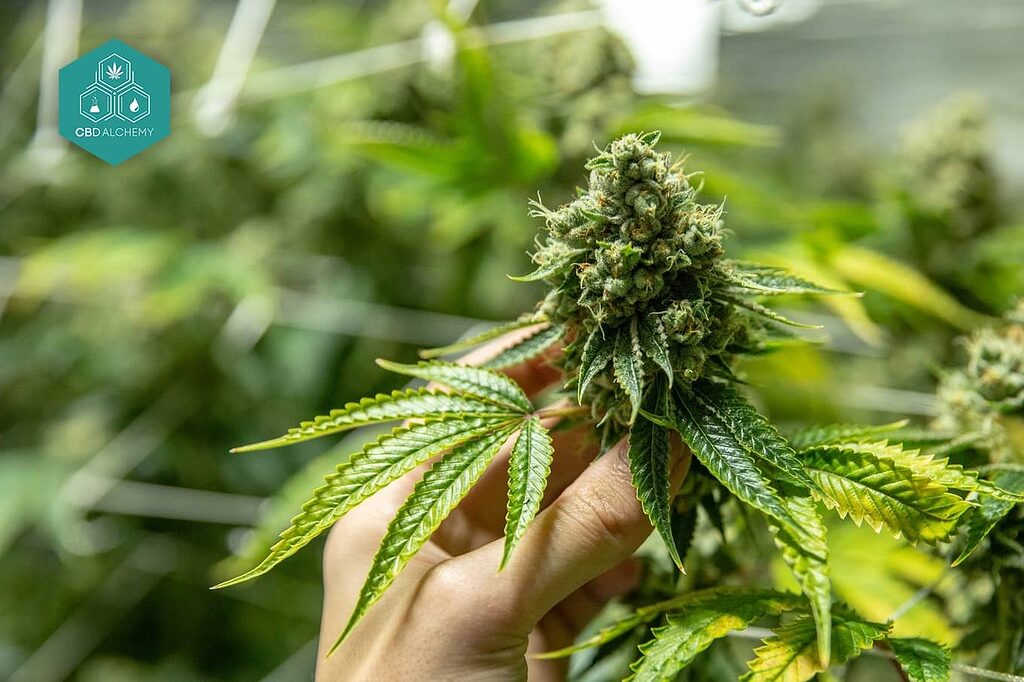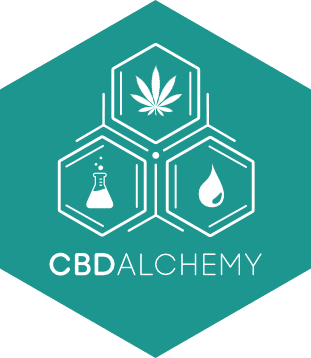- Introduction
- Understanding CBD
- Health Benefits of CBD
- Navigating CBD Products
- Legal Status and Compliance
- Special Applications of CBD
- Potential Side Effects and Safety Considerations
- Frequently Asked Questions (FAQs) about CBD
- What exactly does CBD do for you?
- Is CBD considered a drug?
- What happens when you take CBD for the first time?
- Does CBD really work for anxiety?
- Can CBD help with chronic pain?
- Is CBD legal in my state?
- What are the potential adverse effects of CBD?
- How does CBD interact with other medications?
- Is there scientific evidence supporting CBD’s use in epilepsy?
- What is the role of the Food and Drug Administration regarding CBD products?
- How do I know if a CBD product is safe and of high quality?
- Can CBD help with neurological conditions like Parkinson’s disease and Alzheimer’s disease?
- Does CBD have benefits for cancer patients?
- How does CBD affect mood disorders?
- What is known about CBD’s safety and efficacy from systematic reviews?
- Can I use CBD as a dietary supplement?
- What are the implications of CBD’s interaction with liver enzymes?
- Is CBD safe for everyone to use?
- How does CBD influence the endocannabinoid system?
- What role does preclinical evidence play in CBD research?
- How does preclinical research translate to human applications?
- What has preclinical evidence revealed about CBD’s therapeutic potential?
- How does this connect to TSC treatment?
- What limitations should we consider in preclinical research?
- How does this evidence inform current medical applications?
- Future Implications
- Selecting Quality CBD Products
- Conclusion

Introduction
CBD—short for cannabidiol—is gaining widespread attention as a natural option for wellness.
Derived from the Cannabis sativa plant, this non-psychoactive compound offers potential benefits without the “high” associated with THC. In this comprehensive guide, you’ll discover the science behind CBD, its health benefits, legal status, and how to choose quality products.
Welcome to CBD Alchemy’s ultimate resource on unlocking the potential of CBD for natural wellness, which will allow you to understand: what is CBD?
Understanding CBD
What is CBD?
Cannabidiol (CBD) is one of over 150 cannabinoids found in the Cannabis sativa plant. Unlike tetrahydrocannabinol (THC), CBD does not produce psychoactive effects. This means you can experience potential health benefits without feeling “high.” CBD interacts with the body’s endocannabinoid system, which plays a role in regulating various functions like mood, sleep, and pain through its interaction with cannabinoid receptors.
CBD vs. THC: Key Differences
While both CBD and THC are cannabinoids from the Cannabis sativa plant, they have different effects on the body. THC binds directly to cannabinoid receptors, causing psychoactive effects. In contrast, CBD influences these receptors indirectly, offering potential therapeutic benefits without altering your mental state.
The Science Behind CBD
CBD interacts with the endocannabinoid system’s cannabinoid receptors—namely CB1 and CB2. This interaction may influence the body’s response to pain, inflammation, and mood disorders. Preclinical evidence suggests that cannabidiol inhibits the synthesis of leukotriene TXB4 in polymorphonuclear cells, which contributes to its potent anti-inflammatory activities, potentially affecting neurotransmitter levels and offering various health benefits.
Health Benefits of CBD

CBD for Pain Relief and Management
Chronic and Neuropathic Pain
CBD shows promise in managing chronic pain and neuropathic pain. Clinical trials and systematic reviews have indicated that CBD may influence pain pathways, potentially providing relief for conditions like arthritis and multiple sclerosis.
Joint Pain and Inflammation
By interacting with cannabinoid receptors, CBD may reduce inflammation and alleviate joint pain. Preclinical evidence supports its anti-inflammatory properties, making it a potential option for those seeking natural pain management solutions.
Anti-Inflammatory Properties
CBD’s anti-inflammatory effects may benefit conditions characterized by inflammation, such as arthritis and skin inflammation. Human studies have shown that CBD may reduce cytokine production, which plays a role in inflammatory responses.
CBD for Anxiety and Mood Disorders

Does CBD Really Work for Anxiety?
Early research suggests that randomized controlled trials indicate CBD may help manage symptoms of anxiety disorders and mood disorders. By influencing serotonin receptors, CBD could potentially alleviate anxiety, stress, and improve mental health.
CBD and Sleep
CBD may improve sleep quality by addressing underlying issues like anxiety and pain. High doses have been associated with increased sleep duration, offering a natural alternative for those struggling with insomnia.
Neurological Benefits

Epilepsy and Seizure Disorders
CBD has been approved by the FDA in the form of Epidiolex for treating rare forms of epilepsy like Dravet syndrome and tuberous sclerosis complex. Clinical trials have demonstrated its efficacy in reducing seizure frequency in patients with refractory epilepsy.
According to reviews in Cannabis Cannabinoid Res, clinical studies have shown the efficacy of CBD in reducing seizure frequency in epilepsy patients.
Other Neurological Conditions
Research is ongoing into CBD’s potential benefits for multiple sclerosis, Parkinson’s disease, and Alzheimer’s disease. While early results are promising, more human studies are needed.
Other Potential Health Benefits
CBD is being explored for its role in cancer treatment support, particularly in alleviating chemotherapy-induced nausea and pain. Early research also investigates its effects on heart health and metabolic disorders.
Navigating CBD Products
Types of CBD Products
CBD Oil
CBD oil is a versatile product used sublingually or added to food and drinks. It’s popular for its quick absorption and ease of dosage adjustment.
CBD Gummies
CBD gummies offer a tasty and convenient way to consume CBD. They provide consistent dosages and are discreet for on-the-go use.
Topicals and Creams
Topical CBD products are applied directly to the skin, targeting localized pain or skin conditions like inflammation and acne.
Capsules and Edibles
Cannabidiol extracts in capsules and edibles provide a pre-measured dose of CBD, making them ideal for consistent daily intake.
Full Spectrum vs. Broad Spectrum vs. Isolate
- Full Spectrum CBD contains all cannabinoids, including trace amounts of THC (less than 0.3%).
- Broad Spectrum CBD includes multiple cannabinoids but zero THC.
- CBD Isolate is pure CBD without other cannabinoids.
Understanding these differences helps you choose a product that fits your needs and legal considerations.
Understanding CBD Dosage
Starting with a low dose is crucial. Factors like body weight, individual metabolism, and the specific health issue influence the optimal dosage. Always consult with healthcare providers for personalized advice.
Quality Assurance and Safety
Opt for organic CBD oil and products that have undergone third-party lab testing. This ensures purity, potency, and safety, minimizing the risk of adverse effects.
Legal Status and Compliance
Is CBD Legal in the U.S.?
Under the Agriculture Improvement Act of 2018, hemp-derived CBD with less than 0.3% THC is federally legal. However, state laws vary, so it’s essential to check local regulations.
Regulatory Compliance
The Food and Drug Administration (FDA) oversees the regulation of CBD products. While the FDA has approved certain CBD medications, over-the-counter CBD products are not FDA-approved. Always purchase from reputable sellers who comply with legal standards.
Special Applications of CBD
CBD for Pets
CBD may benefit pets dealing with anxiety, pain, or inflammation. Products like CBD oil for dogs can help manage conditions like separation anxiety. Always consult a veterinarian before administering CBD to your pets.
CBD in Skin Care
CBD-infused skincare products target issues like acne and inflammation. Its anti-inflammatory and antioxidant properties may promote healthier skin.
CBD for Cancer Patients
While not a cure, CBD may alleviate cancer treatment side effects such as nausea and pain. Consult healthcare providers for guidance.
Medical Cannabis and CBD
Medical cannabis, often referred to as medical marijuana, has a rich history of use in treating various ailments. Among its many constituents, cannabidiol (CBD) stands out for its therapeutic potential. As a non-psychoactive compound derived from the Cannabis sativa plant, CBD has garnered attention for its wide range of health benefits.
CBD, a key cannabis sativa constituent, has been extensively studied for its potential to alleviate chronic pain, reduce anxiety, and manage epilepsy. Clinical trials have shown promising results, indicating that CBD can significantly reduce chronic pain and improve sleep quality. For individuals with anxiety disorders, randomized clinical trials have demonstrated that CBD can help reduce anxiety levels, offering a natural alternative to traditional medications.
Moreover, CBD’s anti-inflammatory properties make it a potential treatment for conditions like multiple sclerosis and arthritis. By interacting with the body’s endocannabinoid system, CBD may help modulate inflammation and provide relief from pain and discomfort. As research continues, the therapeutic potential of cannabidiol CBD in various medical conditions becomes increasingly evident, solidifying its role in the realm of medical cannabis.
CBD as a Dietary Supplement
CBD has made its way into the wellness industry as a popular dietary supplement, available in various forms such as oils, capsules, and edibles. These CBD products, including cannabidiol extracts sold online, are widely available and often marketed as natural remedies for a range of health issues. However, the quality and safety of these products can vary significantly, making it crucial for consumers to choose wisely.
When selecting CBD products, it’s essential to look for those that have undergone third-party testing to ensure quality and purity. This step helps verify that the product is free from contaminants and accurately labeled. Consulting with a healthcare professional before starting CBD use is also important, especially for individuals taking other medications or with existing health conditions.
CBD can interact with certain medications, including CNS drugs, and may cause adverse effects, particularly at high doses. Therefore, responsible use under the guidance of a healthcare provider is paramount. As the CBD market continues to expand, prioritizing quality, safety, and informed use will help consumers reap the benefits of this promising supplement while minimizing potential risks.
Potential Side Effects and Safety Considerations
Adverse Effects and Drug Interactions
Common side effects include fatigue, dry mouth, and changes in appetite. CBD can interact with other medications, especially CNS drugs and sedative medications. It’s crucial to consult healthcare providers before starting CBD to avoid potential adverse reactions.
Importance of Consulting Healthcare Providers
Professional guidance ensures safe usage, especially if you’re taking other medications or have existing health conditions. Healthcare providers can help tailor CBD treatment to your needs.
Frequently Asked Questions (FAQs) about CBD
What exactly does CBD do for you?
Answer: CBD, or cannabidiol, is a non-psychotropic plant cannabinoid derived from the cannabis plant. It interacts with the body’s endocannabinoid system, which may influence functions like pain perception, mood, and immune response. Preclinical evidence and some human studies suggest that CBD may offer potential health benefits such as reducing chronic pain, alleviating symptoms of mood disorders, and assisting in pain management. However, more randomized controlled trials are needed to fully understand its efficacy and safety profile.
Is CBD considered a drug?
Answer: CBD is an active ingredient derived from the hemp plant, a variety of the Cannabis sativa species. While over-the-counter CBD products are often marketed as dietary supplements, the Food and Drug Administration (FDA) has approved a prescription cannabidiol called Epidiolex for the treatment of certain types of epilepsy, including Dravet syndrome and tuberous sclerosis complex. Therefore, CBD can be considered both a supplement and a drug, depending on its form and intended use.
What happens when you take CBD for the first time?
Answer: When taking CBD for the first time, some individuals may experience subtle effects such as relaxation, improved sleep, or mild changes in mood. It’s important to start with a low dose, as high doses may increase the risk of adverse effects like fatigue or changes in appetite. CBD can interact with other medications, including CNS drugs and sedative medications, potentially leading to adverse reactions. Always consult with a healthcare provider before starting CBD, especially if you are on medication.
Does CBD really work for anxiety?
Answer: Some randomized controlled trials and systematic reviews have investigated CBD’s potential in managing anxiety disorders and mood disorders. While preclinical evidence is promising, results from human studies are mixed. CBD may influence serotonin receptors, which could help alleviate anxiety symptoms. However, more extensive clinical trials are necessary to conclusively determine its effectiveness and safety profile.
Can CBD help with chronic pain?
Answer: CBD has been studied for its potential in alleviating chronic pain and contributing to pain management. Cannabidiol CBD may inhibit inflammatory and neuropathic pain pathways. Some systematic reviews and clinical trials suggest that CBD could be beneficial for conditions like arthritis and multiple sclerosis. However, individual responses vary, and more research is needed to establish standardized dosing and long-term effects.
Is CBD legal in my state?
Answer: The legal status of CBD varies by state. Federally, the Controlled Substances Act was amended by the Agriculture Improvement Act of 2018, which legalized the cultivation of hemp plants and the production of CBD containing products with less than 0.3% THC. However, state laws differ, and some states have stricter regulations on selling CBD and CBD use. Always check local laws to ensure compliance.
What are the potential adverse effects of CBD?
Answer: While CBD is generally considered safe, it may cause adverse effects such as fatigue, diarrhea, and changes in appetite or weight. Adverse reactions are more likely at high doses or when CBD interacts with other medications. CBD can affect liver enzymes, potentially altering the metabolism of drugs like warfarin. Monitoring by a healthcare provider is recommended, especially for individuals taking multiple medications.
How does CBD interact with other medications?
Answer: CBD can interact with various medications by inhibiting the activity of certain liver enzymes responsible for drug metabolism, such as cytochrome P450 enzymes. This potent inhibition can lead to increased levels of the other drugs in your system, raising the risk of adverse events. Medications that may interact with CBD include CNS drugs, sedative medications, and certain antidepressants. It’s crucial to discuss potential drug interactions with your healthcare provider.
Is there scientific evidence supporting CBD’s use in epilepsy?
Answer: Yes, there is significant scientific evidence supporting the use of CBD in treating certain forms of epilepsy. The FDA approved Epidiolex, a pure CBD formulation, for the treatment of seizures associated with Dravet syndrome and tuberous sclerosis complex in adult patients and children. Randomized clinical trials demonstrated that CBD could significantly reduce seizure frequency in these refractory epilepsy conditions.
What is the role of the Food and Drug Administration regarding CBD products?
Answer: The Food and Drug Administration (FDA) regulates the marketing and sale of CBD products in the United States. While the FDA approves certain prescription cannabidiol medications, over-the-counter CBD products are not FDA-approved for medical use and cannot make health claims. The FDA monitors the market for misleading or false claims and ensures that products meet safety standards.
How do I know if a CBD product is safe and of high quality?
Answer: To ensure a CBD product is safe and of high quality, look for products that have been third-party tested with accessible cannabidiol extracts lab reports. Verify that the product contains the advertised amount of CBD and is free from contaminants like heavy metals and pesticides. Be cautious of cannabidiol extracts sold online without transparent sourcing and testing information. Choose reputable brands that comply with regulations and have positive customer reviews.
Can CBD help with neurological conditions like Parkinson’s disease and Alzheimer’s disease?
Answer: Research into CBD’s effects on neurological conditions such as Parkinson’s disease and Alzheimer’s disease is ongoing. Some preclinical evidence and human studies suggest that CBD may have neuroprotective properties. However, more extensive randomized controlled trials are needed to determine its effectiveness and establish guidelines for CBD treatment in these conditions.
Does CBD have benefits for cancer patients?
Answer: CBD may offer supportive benefits for cancer patients by alleviating symptoms such as pain, nausea, and loss of appetite. Some studies suggest that CBD can enhance the effectiveness of certain cancer treatments, but this area requires more research. It’s important for cancer patients to consult their healthcare providers before using CBD, as it may interact with chemotherapy drugs.
How does CBD affect mood disorders?
Answer: CBD is being studied for its potential impact on mood disorders such as depression and bipolar disorder. By interacting with the endocannabinoid system and serotonin receptors, CBD may influence mood regulation. While preliminary results are encouraging, more clinical trials are necessary to confirm its efficacy and determine appropriate dosing.
What is known about CBD’s safety and efficacy from systematic reviews?
Answer: Systematic reviews compile data from multiple studies to assess CBD’s efficacy and safety profile. Generally, these reviews indicate that CBD has a favorable safety profile with mild to moderate adverse effects. They also highlight the need for more high-quality randomized controlled trials to establish definitive conclusions about CBD’s therapeutic potential across various conditions.
Can I use CBD as a dietary supplement?
Answer: While many CBD products are marketed as dietary supplements, the FDA does not recognize CBD as a dietary supplement due to regulatory concerns. It’s important to purchase CBD from reputable sources that provide transparent information about their products. Always consult a healthcare provider before adding CBD to your regimen, especially if you are taking other supplements or medications.
What are the implications of CBD’s interaction with liver enzymes?
Answer: CBD can affect liver enzymes, particularly cytochrome P450, which plays a key role in metabolizing drugs. This interaction can alter the concentration of medications in your bloodstream, potentially leading to reduced efficacy or increased risk of adverse events. Monitoring by a healthcare provider is essential when using CBD alongside other medications.
Is CBD safe for everyone to use?
Answer: While CBD is generally considered safe, it may not be suitable for everyone. Individuals who are pregnant, breastfeeding, or have underlying health conditions should exercise caution. Adverse effects and adverse reactions can occur, especially when combined with other medications. Consultation with a healthcare provider is recommended to determine if CBD is appropriate for your situation.
How does CBD influence the endocannabinoid system?
Answer: CBD interacts with the endocannabinoid system by influencing cannabinoid receptors indirectly. It may enhance the levels of endocannabinoids in the body and modulate receptor activity. Cannabidiol inhibits the reuptake of anandamide, a key endocannabinoid, potentially affecting pain sensation, mood, and other physiological processes.
What role does preclinical evidence play in CBD research?
Answer: Preclinical studies form the foundation of our understanding of CBD’s therapeutic potential. These studies, conducted in controlled laboratory environments, reveal crucial information about:
- Molecular mechanisms of action
- Safety profiles
- Potential drug interactions
- Therapeutic targets
- Optimal delivery methods
How does preclinical research translate to human applications?
Answer: The journey from laboratory to clinical use involves multiple stages:
- In vitro studies examining cellular responses
- Animal model testing for safety and efficacy
- Pharmacokinetic and pharmacodynamic analyses
- Preliminary safety assessments
- Development of clinical trial protocols
What has preclinical evidence revealed about CBD’s therapeutic potential?
Answer: Laboratory studies have identified several key mechanisms:
- Interaction with the endocannabinoid system
- Anti-inflammatory properties
- Neuroprotective effects
- Antioxidant capabilities
- Impact on serotonin receptors
How does this connect to TSC treatment?
Answer: The FDA approval of Epidiolex for TSC-associated seizures exemplifies successful translation from preclinical to clinical application:
- Initial laboratory studies identified CBD’s anticonvulsant properties
- Animal models confirmed safety and efficacy
- Clinical trials validated these findings in humans
- Long-term studies demonstrated sustained benefits
What limitations should we consider in preclinical research?
Answer: Understanding these limitations is crucial:
- Animal models may not fully replicate human conditions
- Dosing requirements often differ between species
- Laboratory conditions cannot perfectly mirror real-world variables
- Biological differences between test subjects and humans may affect outcomes
How does this evidence inform current medical applications?
Answer: Preclinical research continues to:
- Guide development of new therapeutic applications
- Inform dosing strategies
- Identify potential drug interactions
- Support regulatory approvals
- Direct future research priorities
Future Implications
The robust preclinical evidence base continues to expand our understanding of CBD’s therapeutic potential, leading to:
- New drug development opportunities
- Refined treatment protocols
- Better understanding of mechanism of action
- Improved patient outcomes
- More targeted research initiatives
Selecting Quality CBD Products
Recognizing Reputable Brands
Choose brands like CBD Alchemy that prioritize quality, transparency, and compliance. Look for customer reviews and company credentials. Check out the CBD Shop of CBD Alchemy for more information.
Third-Party Lab Testing
Ensure the product has undergone third-party lab testing for purity and potency. Check for a Certificate of Analysis (COA) to verify results.
Conclusion
CBD offers a range of potential health benefits, from pain relief to anxiety management. By understanding its uses, legal status, and how to choose quality products, you can make informed decisions about incorporating CBD into your wellness routine. Always consult healthcare providers for personalized advice. Explore CBD Alchemy’s premium CBD products to begin your journey toward natural wellness.






